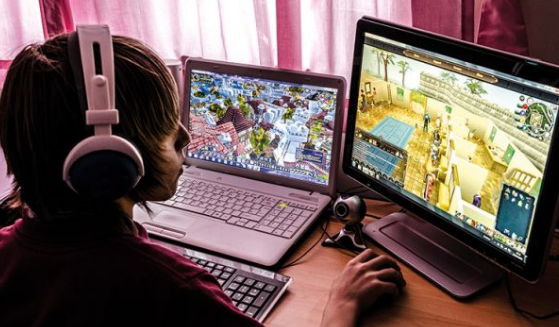COMPUTER GAMES
Today's video game worlds are so detailed that they give the player a realistic and rewarding experience. It is not just children that play these games; it is as common for men from 18 to 30 to have a games console at home. People think this may affect real-life behaviour and ask whether life-like computer games are a good thing. Modern characters have become more like people than cartoons, the language has become more colloquial and the sound effects are now more realistic. For these reasons concerns have been raised about links to aggressive behaviour. Worried parents have started checking the age rating of computer games which are similar to the age ratings of films. So, are computer games making us more aggressive?
According to the scientists, youngsters who play endless computer games could be slowing down their brain development and risk becoming more violent. A new study reveals that teenagers who play such games only use parts of the brain linked to vision and movement. This, in turn, means other parts of their brains are left underdeveloped - which may lead to violent behaviour. By contrast teenagers who carry out simple arithmetic exercises use the part of the brain most associated with learning and self control.
Evidence already shows that computer games are linked to aggression. But it was previously thought that the violence was a psychological result of playing computer games, rather than biological. In the latest study Professor Ryuta Kawashima from Tohoku University in Japan found that the frontal lobe of the brain plays an important role in learning - and in turn works hard at keeping behaviour in check. This, he says, could explain why small children often do things they shouldn't - because their brains are undeveloped. He found that activities such as arithmetic thicken certain fibres connecting neurons in the brain which in turn strengthen learning and behaviour patterns. As a result, he concluded that the more the brain is stimulated, the more fibres are thickened - and the greater ability a child has to learn and control behaviour.
However, he added, 'Although many computer games are violent, there are some which are not and involve strategy and planning. Such games are likely to activate the frontal lobe of the brain.”

